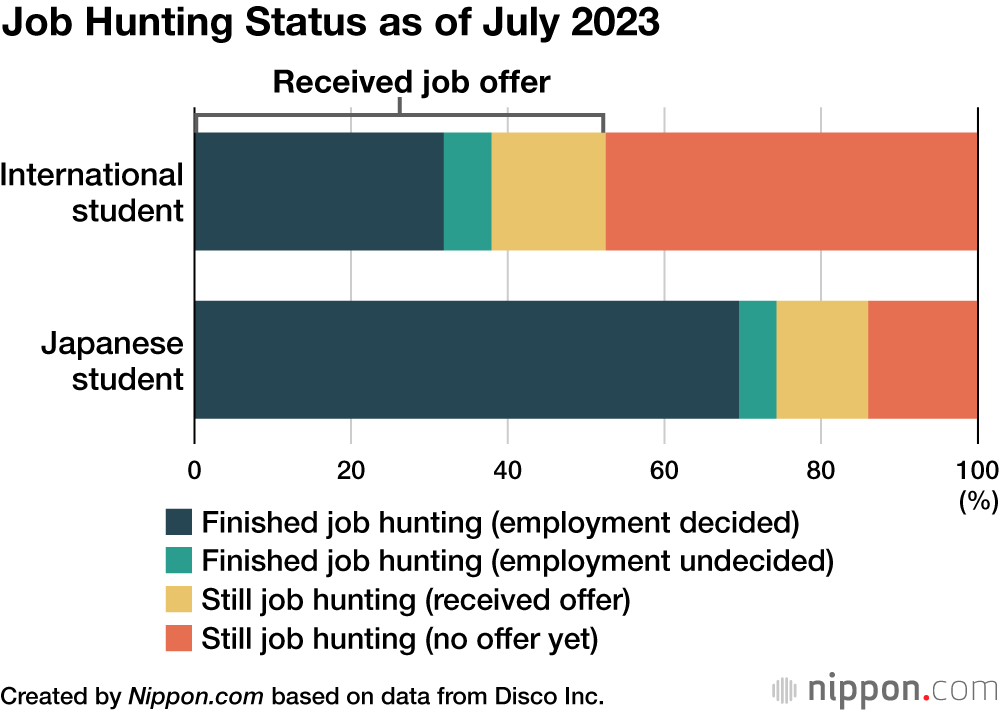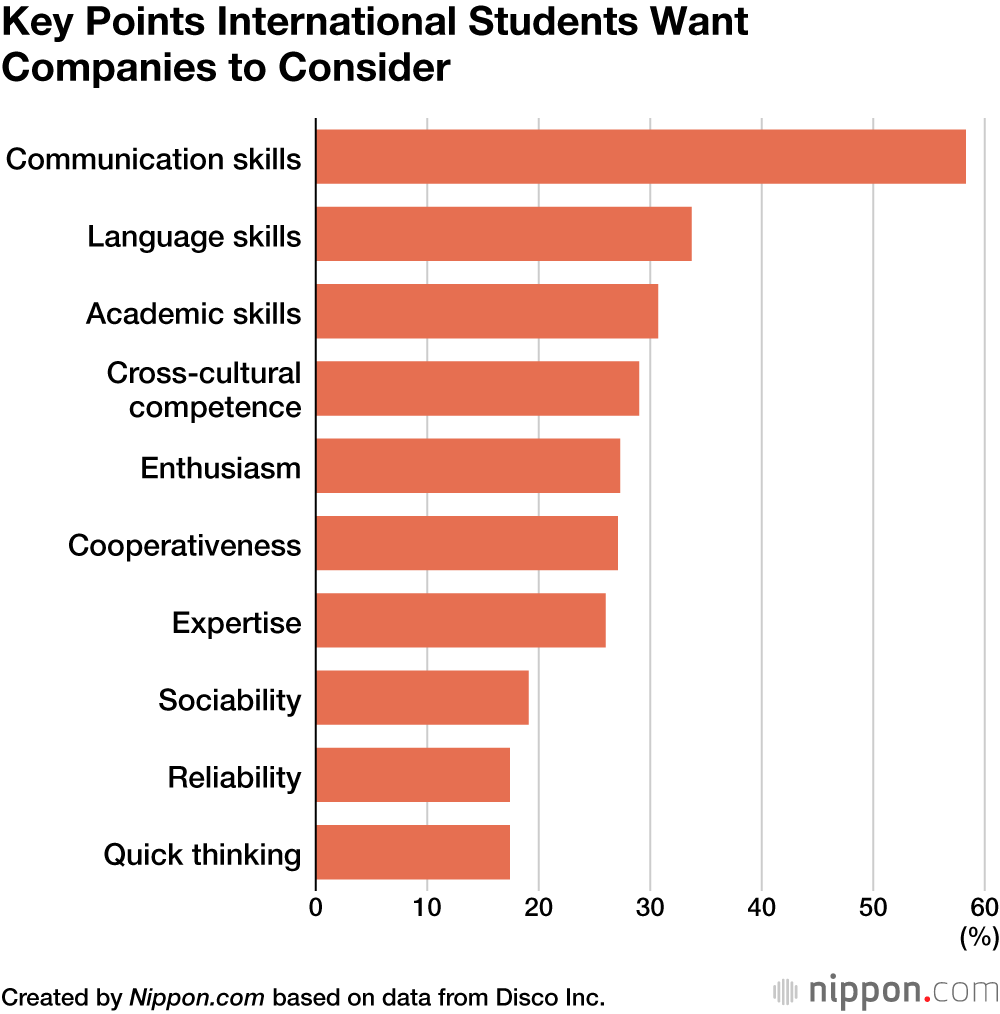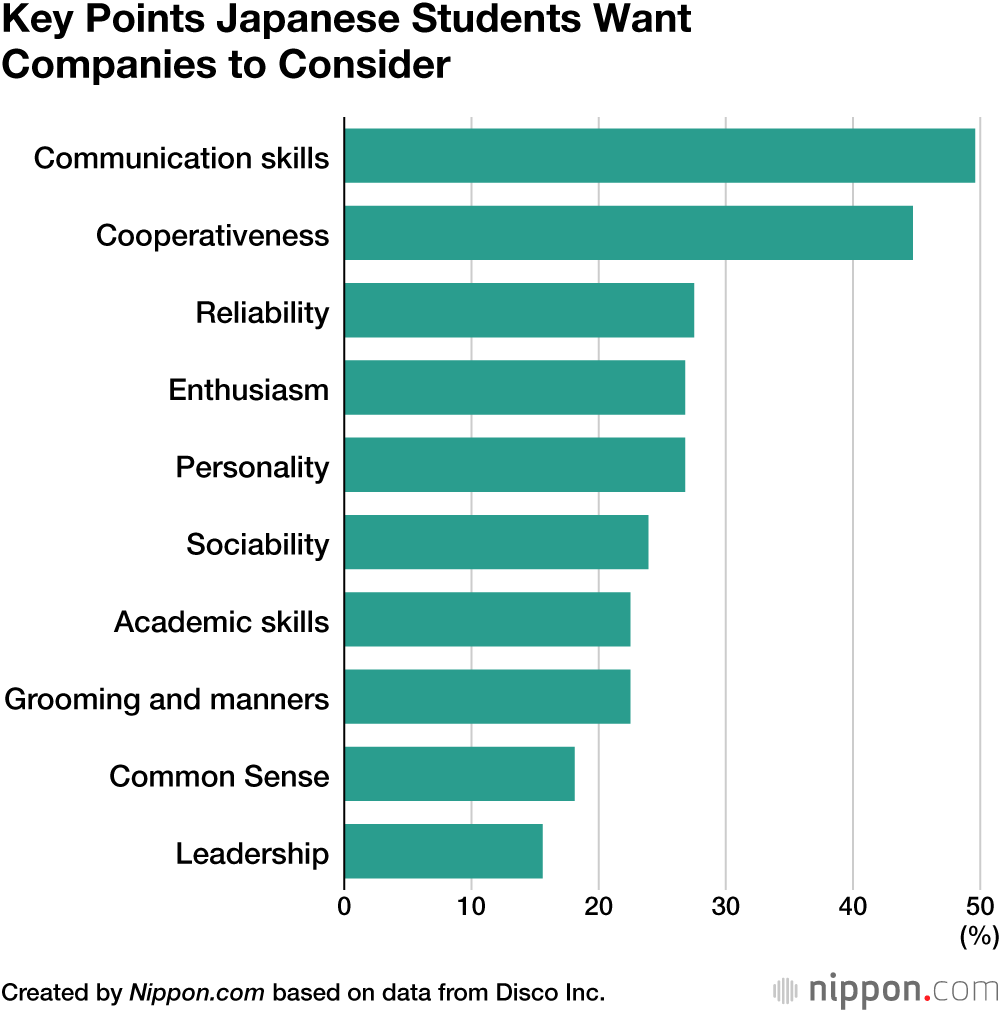
Job Offer Rate for International Students Increases Amid Labor Crunch
Work Education Economy- English
- 日本語
- 简体字
- 繁體字
- Français
- Español
- العربية
- Русский
International students in Japan are enjoying greater job prospects amid a labor crunch as the economy continues to rebound from the downturn caused by the COVID-19 pandemic. A survey of 362 international students registered with job-hunting site Career-Tasu run by Disco Inc. found that 52.5% had received job offers (including informal offers) as of July 2023, up from 48.0% the previous year. This is the highest figure for international students since 2017, when the current job-hunting schedule for students at Japanese universities was introduced. The figure reflects the improved job market in Japan, although the level of job offers for international students is still far lower than for Japanese students at 86.0%.
A total of 62.1% of international students engaged in job-hunting activities, including those who had received promises of employment from companies. This is more than double the 25.7% of Japanese students who were job hunting during the same period.
Japanese university students typically start job hunting around April to June of their third year, whereas international students tend to start in April of their fourth year, a difference that may impact the results of the latter group. An international student from Taiwan who was part of the survey explained that “until I complete my dissertation, I can’t start looking for a job with peace of mind,” while a Vietnamese student lamented that “many companies close their recruitment early, so I wasn’t able to prepare in time.”
The survey also asked what key points students wanted companies to consider when hiring. Leading the list was “communication skills,” which was mentioned by 58.3% of international students and a little less than 50% of Japanese students. Other leading answers among international students included “language skills,” “basic academic skills,” and “cross-cultural competence,” reflecting the hope among many students that companies will value the skills honed through studying abroad.
(Translated from Japanese. Banner photo © Pixta.)


